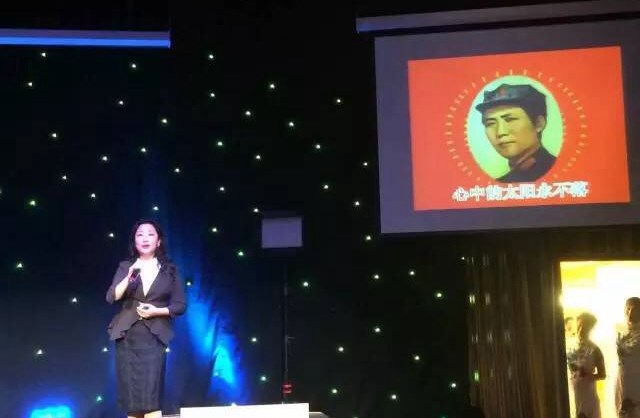"I don’t understand why this kind of thing is happening in this beautiful country. It makes me sick.”

After his 30 or so-strong group had protested outside a tribute concert held in Richmond, commemorating the 40th anniversary of the death of former Chinese Communist leader Chairman Mao, Louis Huang was still shaking his head about the event even taking place.
Huang’s Alliance of the Guard of Canadian Values — made up of Chinese immigrants with a goal to “spread and embrace Canadian values to immigrant Chinese communities” — made their voices heard and presence felt last Saturday outside Stage One Academy on Minoru Boulevard, where the concert was being co-hosted by several Vancouver-based ethnic Chinese organizations.
Despite all being Chinese-born, Huang and his group consider an event celebrating the life of Mao — a controversial figure, credited by his supporters for revolutionizing China in the mid-20th century and likened by critics to Adolf Hitler — to be “wholly unacceptable” and “completely inappropriate” for a place such as Canada.
“Even in China, we have never heard of this and for Chinese-Canadians to be celebrating this is very strange,” said Huang, who claimed the Richmond celebration was the only one of its kind in the world and that similar events, planned in Melbourne and Sydney in Australia, were cancelled due to the outcry from ethnic Chinese communities.
“Mao is the biggest tyrant in human history. More than 80 million Chinese people died of persecution during his 27 years of reign in China.
“We believe that any kind of memorial event for the praise of Mao is inappropriate. The ideology of Mao is completely opposite to our Canadian values.”
According to the program for the Richmond event, the first song that was being sung was The East is Red, which was China’s defacto national anthem during Mao’s cultural revolution and a song that hails Mao as China’s saviour.
In an interview with the Chinese language newspaper Sing Tao, the event’s organizer confirmed that the song was, indeed, sung.
Huang said his 60-strong member alliance — which is based in Surrey, but is active all across the Lower Mainland and Western Canada —believes that when people immigrate to another country, they need to respect the culture they now live in.
“It’s not right. My grandmother, who is 103, was forced into one of Mao’s labour camps,” said Huang, who immigrated from Shanghai in 2002. “There are so many horrible stories from this time.”
Huang said the president of the event’s lead organizer, Zhao Kuan Shi, of the Canada Huafeng Artists Association, stayed inside during the alliance’s protest.
“We did ask to speak to him at the end, but he left through a back door,” added Huang, noting that two alliance members were given access to the event, as long as they didn’t disrupt the concert, which had an estimated 70 to 80 people inside.
When the Richmond News tried to contact Zhao Kuan Shi, a man answering to that name said he didn’t speak English.
Mao was the founding father of the People’s Republic of China and ruled as Chairman of the Communist Party of China from its establishment in 1949, until his death in 1976.
Supporters credit him with driving imperialism out of China, modernising the nation and building it into a world power.
In contrast, critics consider him a dictator — comparable to Hitler — who severely damaged traditional Chinese culture, as well as a perpetrator of systematic human rights abuses who was responsible for an estimated 40 to 70 million deaths through starvation, forced labour and executions.



